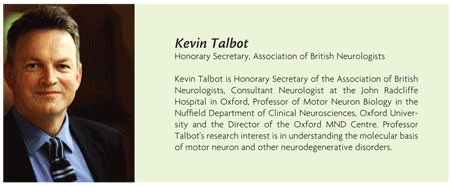

If you, or a member of your family, had an acute and potentially serious neurological problem would you expect to have the benefit of a specialist neurological opinion on the day of your admission to hospital? The Association of British Neurologists (ABN) surveyed all UK Neurologists, who were asked to provide details of their local services, which generated data for 195 acute hospitals across the country. The result is the Acute Neurology Report, the first national survey of acute neurological services, which has just been published by the ABN and reveals that on average across the UK a neurological opinion within 24 hours is only available in just over half of acute hospitals. At worst, in District General Hospitals without a dedicated neurology service, a same-day neurological opinion is only available 30% of the time, on days when a ‘visiting Neurologist’ is present. The thirty-one Neuroscience Centres in the UK mostly meet the highest quality standards by providing daily neurology specialist review and CT and MRI available 24 hours a day. But there remain a disturbingly large number of hospitals with no neurology service at all, with the Northern region, Northern Ireland, the North West, Wales and the West of Scotland having the most sites with significant gaps in neurology services.
This mixed model of neurology service provision, a reflection of the way the NHS has developed around small local hospitals, District General Hospitals and specialist tertiary referral Neuroscience Centres, inevitably leaves gaps and means the experience of a patient with a neurological illness is determined by geographical location rather than clinical need. It is well established that neurological input leads to improved diagnosis and shorter hospital stays, and it is reasonable to conclude that patients with neurological disorders admitted to hospitals without resident neurologists will have significantly worse access to appropriate investigations and services, which is likely to impinge on the quality of their care.
The ABN has proposed a set of Quality Standards, which define appropriate acute neurology care, and can be summarised as follows:
- There should be access to daily consultation by neurology specialists within 24 hours of admission (if necessary by telemedicine) with care in an appropriate inpatient setting depending on clinical need (including the option of transfer to a neuroscience centre, neurosurgery or intensive care).
- Advice on the management of acute neurological emergencies should be available from a neurology specialist at all times
- Urgent inpatient imaging (CT and MRI), where indicated, should be available
- Lumbar Puncture should be available at all times.
- Rapid access pathways should exist for referral from Emergency Departments and Acute Medical Units to neurology outpatient services
The readers of ACNR will no doubt find these standards simple and obvious and may be baffled that they are not part of every hospital’s acute care policy. But the lack of a specific commissioning strategy for neurology has led to inequities in care. Although neurological services have expanded greatly, it is a matter of concern that the provision of inpatient neurological care has been neglected compared to other specialties such as cardiology and gastroenterology, with increased access to outpatient neurological services over recent decades being driven mostly by waiting list targets. Many of the commissioning services and NICE quality standards are disease specific and as a result patients with undiagnosed neurological conditions can be neglected by this process.
A significant step in the right direction would be the adoption by commissioners of the ABN’s Quality Standards, so that neurological services can develop to meet the increasing burden of an ageing population.
ACNR 2015;14(6);19. Online 23/01/15